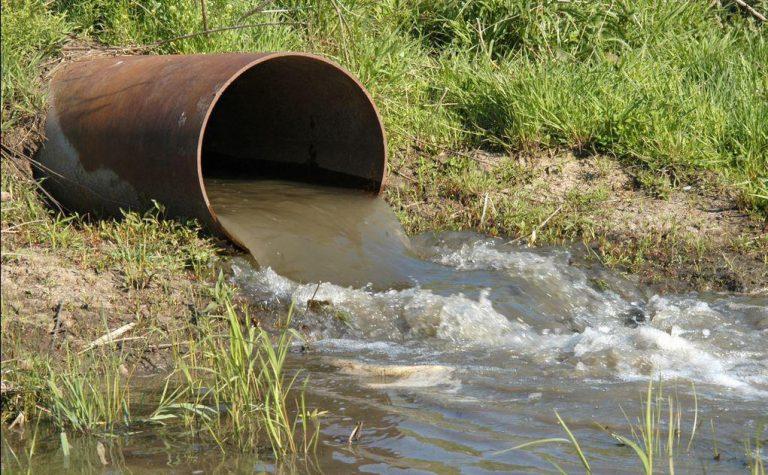4 Benefits of Electrocoagulation for Groundwater Treatment

Even though groundwater sources are somewhat safer from pollution and contamination due to their underground location, they are still susceptible.
A factory may not be able to discharge wastes directly into a groundwater source like they can a surface water stream or river.
However, there are many other ways that waste could potentially contaminate a groundwater source. Because soil is porous, any liquid wastes and solids that have been dissolved can trickle through the dry unsaturated layer and into an aquifer underneath.
Leachate from unlined landfill sites can make its way into groundwater sources with a cocktail of battery acid, paint, household cleaners, and other such toxic substances.
Leaky septic systems full of human waste or storage tanks for gasoline, oil, and chemicals can pollute groundwater in a similar way. Farms, use pesticide sprays and nitrate-rich fertilizers to keep their produce healthy.
However, heavy rains can cause these substances to seep into an underground aquifer. This is why groundwater treatment is so important to both municipalities and industrial organizations.
Groundwater is an important source for drinking water and process water applications. Therefore, if not treated properly, contaminants from those sources can cause health issues for people and drastically increase maintenance of industrial systems.
Many different technologies, from biological to chemical and physical, have been used to treat groundwater before it is used. These different processes have their appropriate benefits and disadvantages.
Below, we will discuss four benefits of using electrocoagulation (EC) to aid in the groundwater treatment process to remediate contaminated groundwater.
Can Treat a Wide Range of Contaminants
Groundwater is susceptible to contamination from a number of sources due to the porosity of soil. The broad range of sources means that it can be polluted by many different types of materials and elements. Some contaminants are from natural sources, but a majority of the more harmful contaminants are from the leaching of human-made substances. The variety of pollutants can make it difficult to treat contaminated groundwater. This contaminated groundwater, can require a multistage complex process to remove or reduce most of them. EC is capable of reducing a multitude of different contaminants in a single system. However, this does depend on the optimal pH matching up for those contaminants, electrode material, and necessary reaction times.
Low Cost
Treating groundwater can become quite costly depending on what needs to be treated, and what process needs to be used to treat it. Each process has its own costs associated with it from startup to operation to maintenance. Electrocoagulation is one of the treatment methods with one of the lowest associated costs for its contaminant removal capabilities. The system is quite simple, with basically no moving parts. The electrodes are typically metals that can be procured at reasonable cost. Any chemicals for pH adjustment are inexpensive, and may not even need to be used depending on the initial pH of the groundwater. These systems provide ease of use, with minimal operator involvement utilizing system automation.
Can Treat Dissolved Solids (TDS)
Many of the contaminants in groundwater are dissolved. These solids can be difficult to remove because they are so small, but with EC this is much easier. While it cannot reduce certain constituents of TDS, it can reduce components of TDS such as hardness minerals and heavy metals. Chemical coagulation would require multiple processes to achieve lower performance results.
Low Sludge Formation
In a chemical coagulation process, high volumes of hazardous solid sludge are produced because of the addition of the chemicals that induce the coagulation process. This is not an issue with electrocoagulation. EC systems requires little, if any harmful chemical additives. The additives it does need are typically used solely for pH adjustment and may only be needed in small amounts. In addition, the sludge may be harmless enough that it can be used as a soil additive to organic fertilizer for agriculture applications. This advantage would reduce associated sludge disposal cost.
While it would be nice if our groundwater sources were pristine, requiring no treatment. However, in areas across the US and around the world this is typically not the case.
Treatment doesn’t have to be a hassle, and specialized electrocoagulation technology can potentially be apart of an optimized solution for groundwater treatment applications.
Genesis Water Technologies, Inc. is well aware of the benefits of EC for groundwater treatment in both drinking water and process water applications. Therefore, we integrate our specialized electrocoagulation systems to provide an advanced and innovative treatment solution to our municipal and industrial clients.
Do you think electrocoagulation could be an ideal solution for your local groundwater treatment issues, and you want to learn more? Call Genesis Water Technologies at 1-877-267-3699 in the USA or email us at customersupport@genesiswatertech.com to setup a free initial consultation to discuss your groundwater application.

